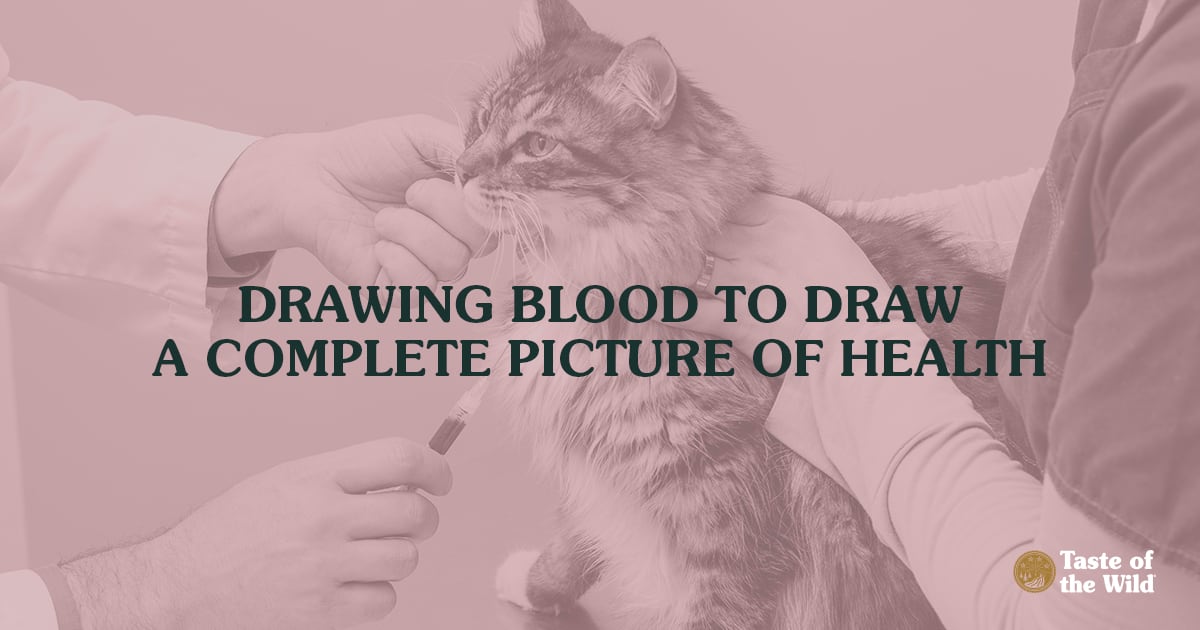
Cats are often the stoic sort, preferring to hide their aches and pains behind a cool veneer of aloofness. Their blood, on the other hand, is truthful and forthright — exposing details about your cat’s secret health life that it, no doubt, would prefer to keep to itself. Since cats can’t tell us what’s wrong, veterinarians often rely on diagnostic tests such as blood work to assess and track your cat’s health.
To perform these tests, the veterinary staff will use a syringe to draw a blood sample from your cat’s vein, a procedure that is quick and relatively painless, just like when you undergo a similar procedure.
When blood tests are helpful
There are many instances in a cat’s life when your veterinarian may recommend a pet blood test:
- When you adopt a new kitten or cat — a blood test can specifically check for feline leukemia virus and feline immunodeficiency virus, two serious infections that can be contagious to other cats in your household.
- Before anesthesia — among other things, blood tests can help your veterinarian assess if your cat’s organs are healthy enough to safely metabolize anesthesia drugs.
- At regular wellness exams — blood tests may pick up health abnormalities before your cat shows any signs of illness.
- When your cat doesn’t feel up to snuff — a little blood can help your veterinarian diagnose common feline conditions such as hyperthyroidism (an overactive thyroid), liver or kidney disease or diabetes.
- At senior checkups — since older cats are more likely to experience certain conditions, monitoring changes from one blood test to the next can help your veterinarian identify problems early and track the success of treatments over time.
Basic blood screening tests
Two common blood tests help your veterinarian get a broad overview of your pet’s health:
A complete blood count, or CBC, analyzes the red blood cells, which carry oxygen to organs throughout the body, the white blood cells, which help fight infection, and the platelets, which help stop bleeding. Among other things, this test can help identify dehydration, anemia, infection and potential allergic or parasitic conditions.
A blood serum chemistry panel reveals details about the health of internal organs including the liver, kidney and pancreas. Tests can also be performed that provide a peek at the status of electrolytes and some hormones.
Part of the big picture
While blood tests can reveal a lot about your cat’s health, your veterinarian needs to view the results in context with your cat’s history and physical exam. Additional, more specific blood tests may be needed, as well as other diagnostic tests, such as a urinalysis, X-rays, ultrasounds and more.
If you have any questions about your cat’s blood tests, your veterinarian will be happy to fill you in with more details.
The information in this blog has been developed with our veterinarian and is designed to help educate pet parents. If you have questions or concerns about your pet's health or nutrition, please talk with your veterinarian.
